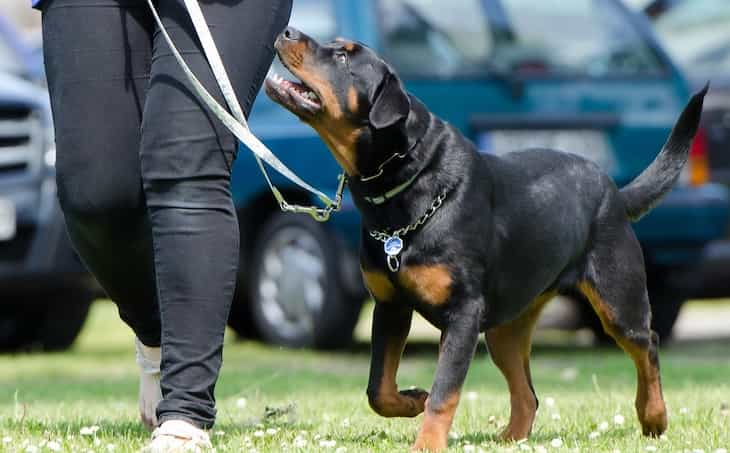Dogs need leaders – that's the only way they behave well and actually follow your commands.
Unfortunately, lots of pet owners love their dogs too much to actually be authorities for their favorite pets.
Here are some tips on how to build a hierarchy and make your dog respect and love you.

Set Clear Rules and Boundaries
Clearly communicate the rules your dog should follow.
This includes where they can go, what they can chew, and acceptable behaviors. Consistency is key.
Be Consistent in Commands
Use consistent commands for various actions.
Dogs learn through repetition, so make sure your cues are clear and uniform.
Positive Reinforcement
Use positive reinforcement techniques, such as treats, praise, or toys, to reward good behavior.
This encourages your dog to repeat positive actions.
Quality Time and Bonding
Spend quality time playing, exercising, and bonding with your dog.
Engage in activities they enjoy to build a positive association with your presence.
Establish a Routine
Dogs thrive on routine. Set a schedule for feeding, walks, and playtime.
This creates predictability, and your dog will feel more secure in knowing what to expect.
Leadership During Walks
When walking your dog, lead the way.
Use a sturdy leash and guide your dog rather than letting them dictate the direction. This reinforces your role as the leader.
Correcting Behavior
When correcting undesirable behavior, do it calmly and assertively.
Avoid aggression, as this can lead to fear rather than respect.
Patience and Understanding
Building trust takes time.
Be patient and understanding, especially if your dog is learning new commands or adjusting to changes.
Provide a Safe Space
Create a designated, comfortable space for your dog where they can retreat when needed.
This allows them to feel secure and have a place of their own.
Regular Vet Check-ups
Ensure your dog's health by scheduling regular vet check-ups.
A healthy and comfortable dog is more likely to respond positively to your authority.
Previously, we talked about animal hybrids.












